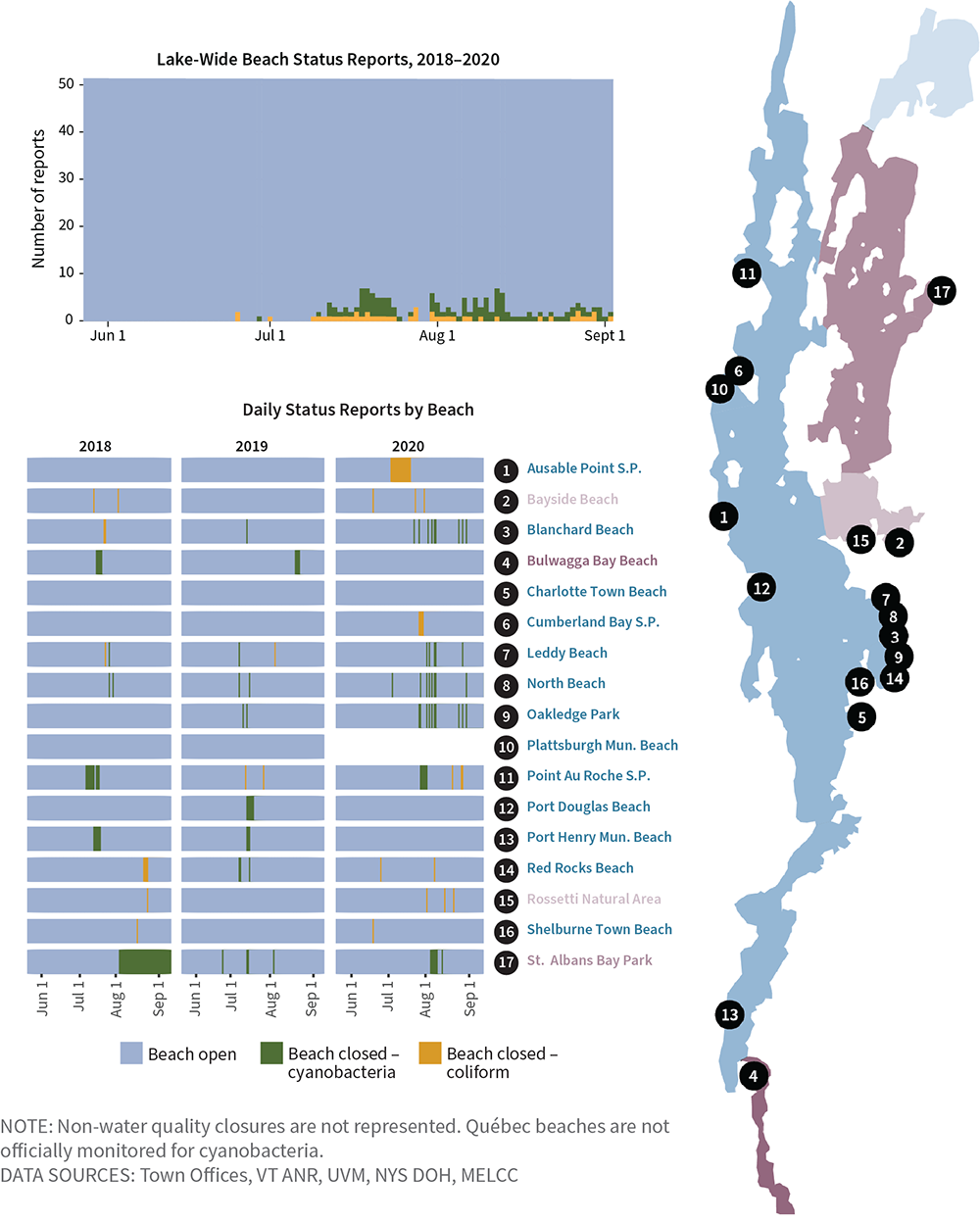
Volunteers with the Lake Champlain Committee collect water samples at North Beach in Burlington, VT, as part of the volunteer blue-green algae monitoring program.
Local health departments in New York and Vermont sample the water at public beaches to determine if there is any threat to human health from pathogens such as fecal coliform. Pathogens, including giardia and cryptosporidium, can cause gastrointestinal illnesses when ingested accidentally while swimming. The Basin has experienced occasional beach closings at a few municipal beaches between 1994 and 2000 as indicated on the Lake Champlain Beaches Map [505 KB]. Plans have been initiated in local communities to control pathogens from animal waste, urban runoff and failed septic systems to keep swimming areas clean and enjoyable.
E. coli and toxic blue-green algae are also of concern for beaches. For the past several years, beaches on the Quebec portion of Missisquoi Bay have been closed due to blue-green algae blooms, and health advisories have been issued in Vermont. Read more about both these concerns on the Human Health Issues page.
Public information about beach water quality and monitoring has received greater attention in recent years. For example, the City of Burlington, in partnership with the University of Vermont, the Lake Champlain Center and the Green Mountain Institute for Environmental Democracy began its Eco-Info Project with a grant from the U.S. Environmental Protection Agency. The Eco-Info Project focuses on urban air, water, energy, and land issues affecting the greater Burlington area and Lake Champlain. The Eco-Info website maintains publicly accessible data about water and air quality.
LCBP Links

LCBP Home
Swimming in Lake Champlain is normally safe. However, pathogens and toxins occasionally can pose a risk to swimmers.
Learn More →

Opportunities for Action
The LCBP and its partners are working on many fronts to reduce toxins and pathogens.
Learn more →

State of the Lake
17 of 54 public beaches on Lake Champlain were open 97% of the swimming season from 2018-2020.
Learn more →



 Lake Champlain Basin Program
Lake Champlain Basin Program